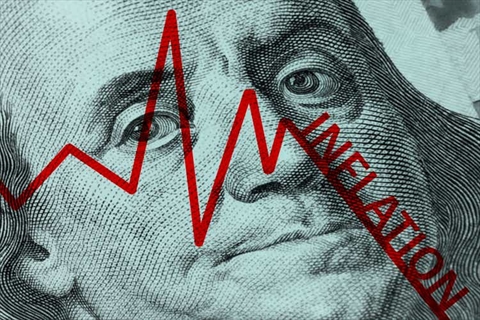
On April 25, GE HealthCare Technologies( GEHC 0.49 %), a division of General Electric, is scheduled to release its first-quarter earnings. The company is using artificial intelligence ( AI ) to increase healthcare efficiency, and the stock has increased by more than 46 % so far this year.
These days, a lot of businesses are buzzing around the idea of AI because it seems to be promising for piqueing investors' desire. However, GE HealthCare is one of many health care organizations that uses machine learning in almost every aspect of their operations.
seeking expansion through acquisitions and mergers
GE HealthCare purchased the French company Impactis in January, not long after it split off from General Electric ( GE ), which uses computed tomography( CT ) interventional guidance to assist surgeons. CT is used in the process to direct pins in a variety of techniques. To provide clinicians with real-time 3D CT images to direct biopsy needs for biopsies, drain, therapeutics, and some applications, GE HealthCare announced in April that it is developing CT-navigation.
Through a variety of Caption AI applications, the company acquired Captions Health in February. This confidential company uses AI to assist in performing ultrasound imaging. The programs are intended to speed up and simplify ultrasonic examination, enabling a larger range of professionals to perform fundamental echocardiograms.
Steve Cashman, CEO of Caption Health, stated at the time of the acquisition that the arrangement may help doctors identify illnesses more quickly. This will really assist us in cutting costs and improving care, Cashman said.
avoiding the market
Some businesses may be able to produce their medical supplies for less because there is a lot of competition for GE HealthCare's's items. However, GE HealthCare excels in creating integrated techniques for those items.
Consider, for instance, its ultrasonic equipment. Since ultrasound has been used for diagnostic since 1942, the concept is not entirely original.
However, GE's's most recent ultrasound release, the ViewPoint 6, includes improvements to security, fresh tables and graphs, and improved tracking monitoring. Systems like the ViewPoint 6 are being used to streamline and document ultrasonic test in the emergency room as a result of the rising labor expenses for hospitals.
AI is also being used by GE HealthCare to enhance its MRI units. It unveiled Signa Experience in November, a base made up of four related technologies that enhance MRI scanning and is led by the Smarta One system, which makes use of smart automation. To enhance MRI images and reduce searching time, the product includes AI applications.
Additionally, the business lately introduced ReadySee, a brand-new resource planning and network monitoring tool. It is intended to use data to strengthen security protocols to safeguard individual medical information as well as to better understand the equipment and facilities that hospitals use.
GE HealthCare considers its power to be the fusion of integrated systems that can use facts and machine learning to enhance the functionality of medical equipment.
Last year, Peter Arduini, CEO of GE HealthCare, spoke with MedTech Dive about health technology information.
I estimate that 97 % of the information gathered in hospitals today is actually not used. We consider that to be a stacked diamond plant that is nearby. And it's's a win for patients if we can help unlock that, even though I don't own it or even have direct access to it. It's's a win for the institutions, and ultimately, it will benefit our shareholders' ability to create value.
The Food and Drug Administration granted the business permission to use its Carescape Canvas individual checking platform on April 20. Using good parameter technology, the standardized system can be customized to meet the needs of specific patients.
A solid beginning
For the time being at least, GE HealthCare may incur costs related to its new situation as it continues to adjust to being its private business. For instance, net income decreased from$ 2.2 billion in 2021 to$ 1.9 billion last year.
Although, the business is making a strong start in terms of sales growth. The business reported in its first quarterly state since its spinoff that it had$ 18.3 billion in sales in 2022, an increase of 4.3 %.
The business has four divisions: imagination, ultrasound, patient care services, and medical diagnostics. Due to better sales of the company's's molecular imaging, computed tomography, and magnetic resonance systems, the first three all experienced revenue gains in the fourth quarter, with imaging seeing an increase of 11 % year over year.
Before buying Impactis and Caption Health, GE HealthCare estimated that organic revenue would increase by between 5 % and 7 % this year. Additionally, it stated that it anticipated adjusted earnings per share( EPS ) of between$ 3.60 and$ 3.55, up from adjusted EPS of$ 3.38 in 2022.
creating lasting connections with clients
Although medical equipment can be pricey, GE HealthCare is using AI to adjust its machines, which is lowering manpower costs for care facilities. Because they extend the time before equipment becomes obsolete, the company's's integrated programs will promote customer loyalty.
GE HealthCare isn't a small business; it employs about 50, 000 people, and it is putting in place an expansion technique that its people and clients can comprehend. Even though it is a brand-new business, it still has all the benefits and adventure that came with joining GE earlier.




